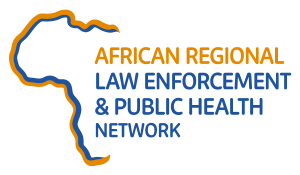
By Michael Brown, GLEPHA Fellow, MentalHealthCop, PhD student, University of Birmingham
Every day in the United Kingdom and around the world, police officers do things to help members of the public. Some of this is obviously connected to legal duties around crime, which is what everyone thinks policing is all about but much of it is nothing to do with legal obligation and little to do with crime. It could hardly be otherwise, if we think about it: policing exists to ensure there is a body of people
available to us, ensuring to a reasonable extent things like safety and order, not always perfectly preserved and not always preserved perfectly, but it’s there.
If you’ve ever read about, studied or seen policing in other countries, you will realise it can be very different. The obvious difference UK officers see when they see foreign police officers is that they’re armed and those societies don’t have a panic about the fact their police are armed. It’s easy to find comments abroad arguing the UK approach is madness and we all know of situations in the UK where, had officers been armed for the purposes of self-defence, we may have a seen officers saving their own lives, even if were sometimes at the expense of those who ended up in prison or psychiatric hospitals for homicide of a police officer. Whatever you think about foreigner’s attitudes towards UK police being unarmed the fact remains, society in the UK decides whether the police are routinely armed or not, the police don’t get to decide it for themselves.
This is true of their role around mental health as well: their role is defined for them, not by them – both directly and indirectly. To see this, you only need to compare mental health legislation in a few countries.
Emergency Mental Health Incidents
- The UK and New Zealand are the only two countries I know of where the emergency legal power for the police to intervene in mental health crisis is a power for public places only.
- Most countries (including Australia, Canada, South Africa, Namibia and India as well as others) all allow their police to use section 136 MHA type powers in private dwellings as well as public places.
- In fact, discuss this point with non-UK professionals in policing or mental health services and they think it’s fairly weird we send officers to situations in private homes without the power to keep people safe who are not safe and without the ability to ensure health services attend to them.
- But this is the deliberate will of the UK parliament who have considered this specific issue at least twice in the last decade and it has obvious potential define the role of the police in responding to mental health crisis, most of which occurs in private dwellings, at least in terms of calls to UK police services.
Mental Health Support to Healthcare
- In the Republic of Ireland and New Zealand, powers exist in mental health law for healthcare professionals to direct policing activity, for example, the conveyance of patients from one place to another in some circumstances where patients are being admitted to hospital.
- In the UK, there are no equivalent powers – yes, British officers must facilitate entry to premises where a warrant is issued by a court, but having done so, there is no power for healthcare professionals to command the Chief Constable’s resources, but in both the RoI / NZ, that is precisely what their parliaments have allowed, in law.
- This creates differences in dynamics: being able to compel the police, at least in principle, ensures healthcare professionals can ensure admission of the most challenging complex patients; but it also means they become responsible for the impact of policing on vulnerable people and it can create
conflict with police commanders wanting to see resources prioritised elsewhere. - But in the UK, being unable to direct them means the British courts have had to consider inquests where deaths occurred whilst mental health professionals were waiting on responses from police officers to ensure safe admissions.
So the law affects the role of the police services and Gardai have obligations British constables don’t and this plays out in negative ways whichever way you do it – what’s your least worst scenario?
A SOCIAL DEFINED ROLE
Right Care, Right Person is a British policing programme which is now becoming an international idea and it has attempted to define the police role with harder boundaries, with a view to saving police time under the auspices of claiming to “ensure” improved care for vulnerable people and reduce over-policing. Yet to be formally evaluated in any meaningful way prior to its British roll-out, it has already been linked to discussions about deaths after contact with state agencies and harms being caused to the public and healthcare professionals. Of course, it should not need pointing out: the police declining to attend an incident because they don’t have a legal obligation to do so or because there could be negative consequences is one thing – and we can all think of examples of where inappropriate attendances have escalated situations and led to adverse outcomes. However, whether declining to attend and pointing the person elsewhere "ensures" the “right care” by the “right person” is another thing entirely – RCRP would do well to see what happened when previous initiatives like “Street Triage” (a co-responder concept) also promised to ensure more appropriate care, often leading to no care at all.
Most of us in countries like the UK who live mental health difficulties are not in receipt of care or where they are, it is primary care from their general practitioner – 8 minutes per appointment and few of us meet the threshold for referral to specialist, secondary services which have always been badly under-resourced. That said, the UK is fortunate to have a public mental health system at all because we know the police in the United States are operating in an environment where they cannot direct the public anywhere else because many do not have insurance to enable access and there is no statutory right to mental health in many states.
It was made known in recent weeks that a review of policing and mental health in New South Wales is recommending the “Right Care, Right Person” type approach be adopted there, after a succession of incidents in the Australian state where fatal force has been used in circumstances where it proved controversial. But whether NSW Police simply declining to attend such incidents means mental health services will be resourced, willing and able to provide a response instead is not clear.
We have seen the same in New Zealand where nursing unions have complained of non-responses leading to staff being hurt. Low and middle income countries find huge psychiatric morbidities in their prison populations, so much so that countries like Namibia started using one prison in Gobabis in the east of the country, to house mentally ill prisoners so it was easier for those few mental health professionals who
work in public practice to provide mental health in-reach services. This might not be necessary if there was a functioning mental health system with capacity to accommodate the population with acute mental health needs, but there isn’t, so here we are.
The police (and criminal justice system) have never been able to draw their own boundaries on their role – whether relating to mental health or to anything else. It has always been it is defined for them by its society, both directly and indirectly, by commission and omission of what that society is prepared to pay for by way of alternatives. You can have as little criminalisation of the vulnerable as you’re prepared to pay for and when deciding the figure, it’s worth remembering you’ll pay anyway because if you don;t, your police and criminal justice system will eventually step in and make decisions about threats and disorder in the broader public interest which are often fantastically expensive – and not just in terms of money.






